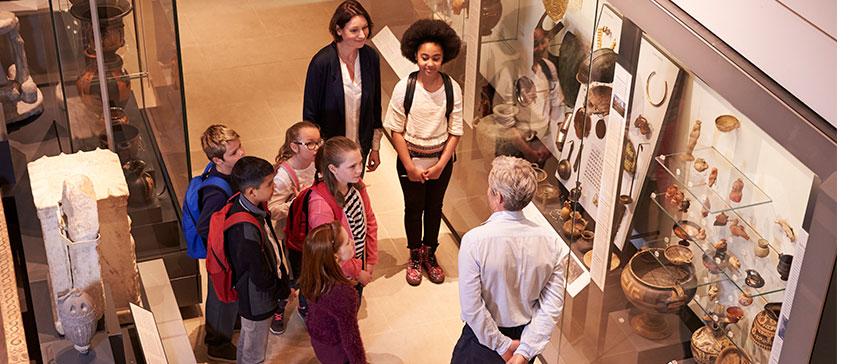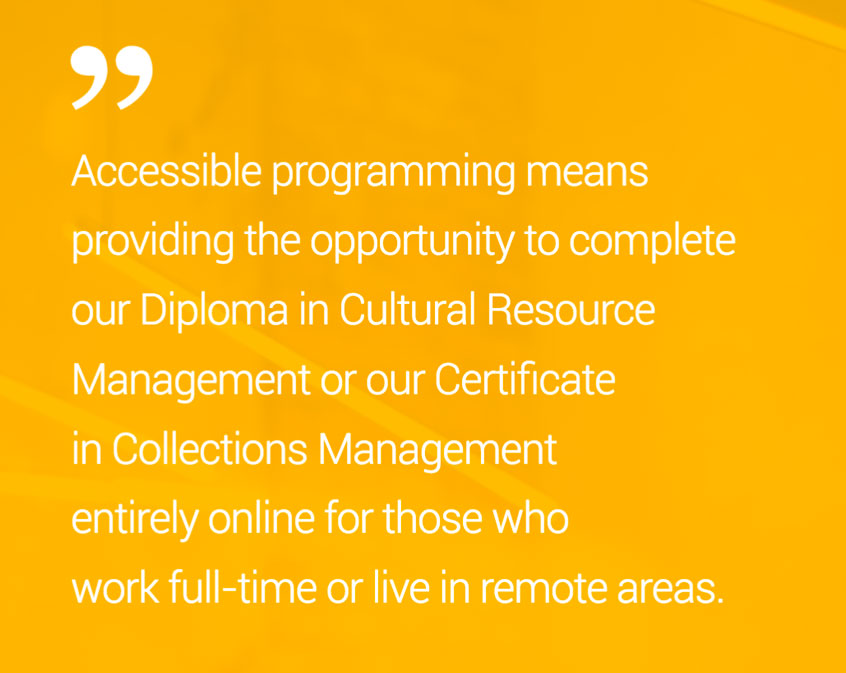Home / Continuing Studies News / Culture in context
Culture in context

By Program Coordinator Tusa Shea
What is culture? Google defines it as “the customs, arts, social institutions, and achievements of a particular nation, people, or other social group.” While some people may think of culture as “the icing on the cake,” we believe that culture is more integral. It is everywhere, from our favourite neighbourhoods and traditional celebrations to our memories, our beliefs, and our desires for the future. When it comes to our perceptions of life satisfaction and well-being––the things that help us measure happiness––culture is key. This belief is the driving force behind our Cultural Resource Management Program (CRMP) at Continuing Studies at UVic.
Supporting communities and cultural development
Through our Cultural Resource Management Program, we support communities and cultural development with educational programing and professional development opportunities for the people who work in museums, galleries, historic sites, and cultural centres. These professionals, from the volunteers to the directors, are passionate about culture because it sits at the core of every community’s identity.
Culture is what makes our communities great places to live. Not only does it bring people together but it is a major contributor to the economy and job creation. According to Statistics Canada, at $47.8 billion the culture industry's contribution to the Canadian GDP is larger than that of the utilities or accommodation industries, and was more than double that of the agriculture, forestry, fishing and hunting industry!

How we develop our programs
Cultural Resource Management is a diverse field, requiring an equally diverse skill-set. With this in mind, our CRMP certificate and diploma programs have been developed to address these needs, in a highly flexible format that allows these valuable professionals to continue working throughout their program.
This begins with ensuring our students have access to courses no matter where they are located and no matter what their learning style is. Accessible programming means providing the opportunity to complete our Diploma in Cultural Resource Management or our Certificate in Collections Management entirely online for those who work full time or live in remote areas. For those who prefer a face-to-face experience, we offer 6-day immersion courses. We can even bring courses to a remote community, as we’ve been doing for the past three years in Whitehorse YN, where we’ve been holding courses and workshops in order to provide educational opportunities for Indigenous cultural sector workers who want to learn in a classroom close to home.
Wide range of course topics
Community support and cultural development is not just about access; we also strive to offer a wide range of course topics such as Caring for Museum Collections, Exhibition Fabrication, or Public Programming. And we stay current in these, and other, topics through our passion and engagement with the community of learners we serve. By attending conferences, researching, and consulting with experts, we provide up-to-date learning on topics that matter. We regularly develop special topics courses to address current issues, such as “Difficult Heritage” and how to tell stories of a troubled past.
We see Cultural Resource Management as the interface between our past and where we’re going, collectively as a society. It’s where we interact with history, interpret its stories through cultural context, and decide which direction we want to go into the future.
- Posted July 27, 2017
RELATED TOPICS: Indigenous Language and Culture
Visit Registration
2nd Floor | Continuing Studies Building University of Victoria Campus 3800 Finnerty Road | Victoria BC | CanadaTel 250-472-4747 | Email uvcsreg@uvic.ca
2025 © Continuing Studies at UVic
Legal Notices |
Sitemap

